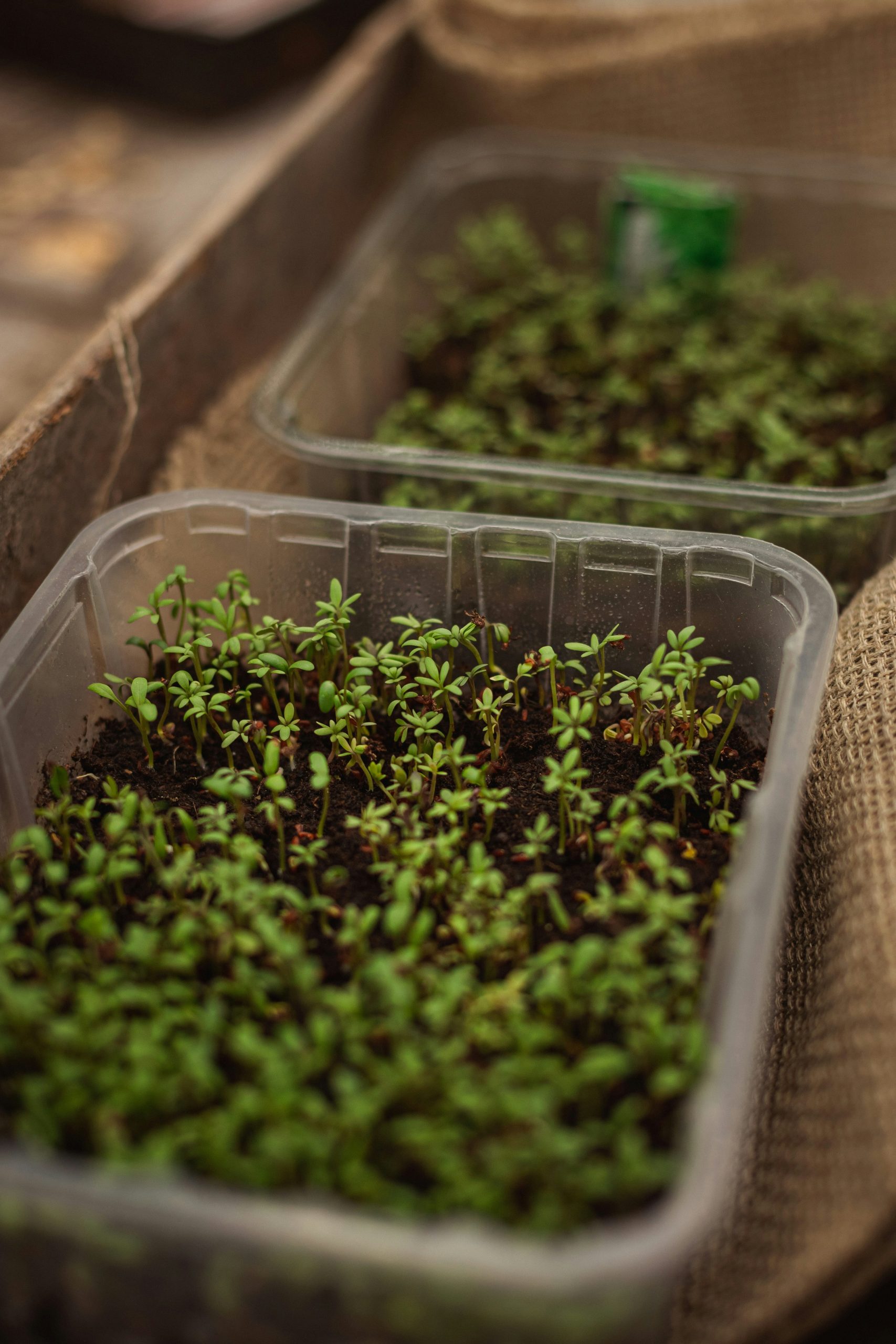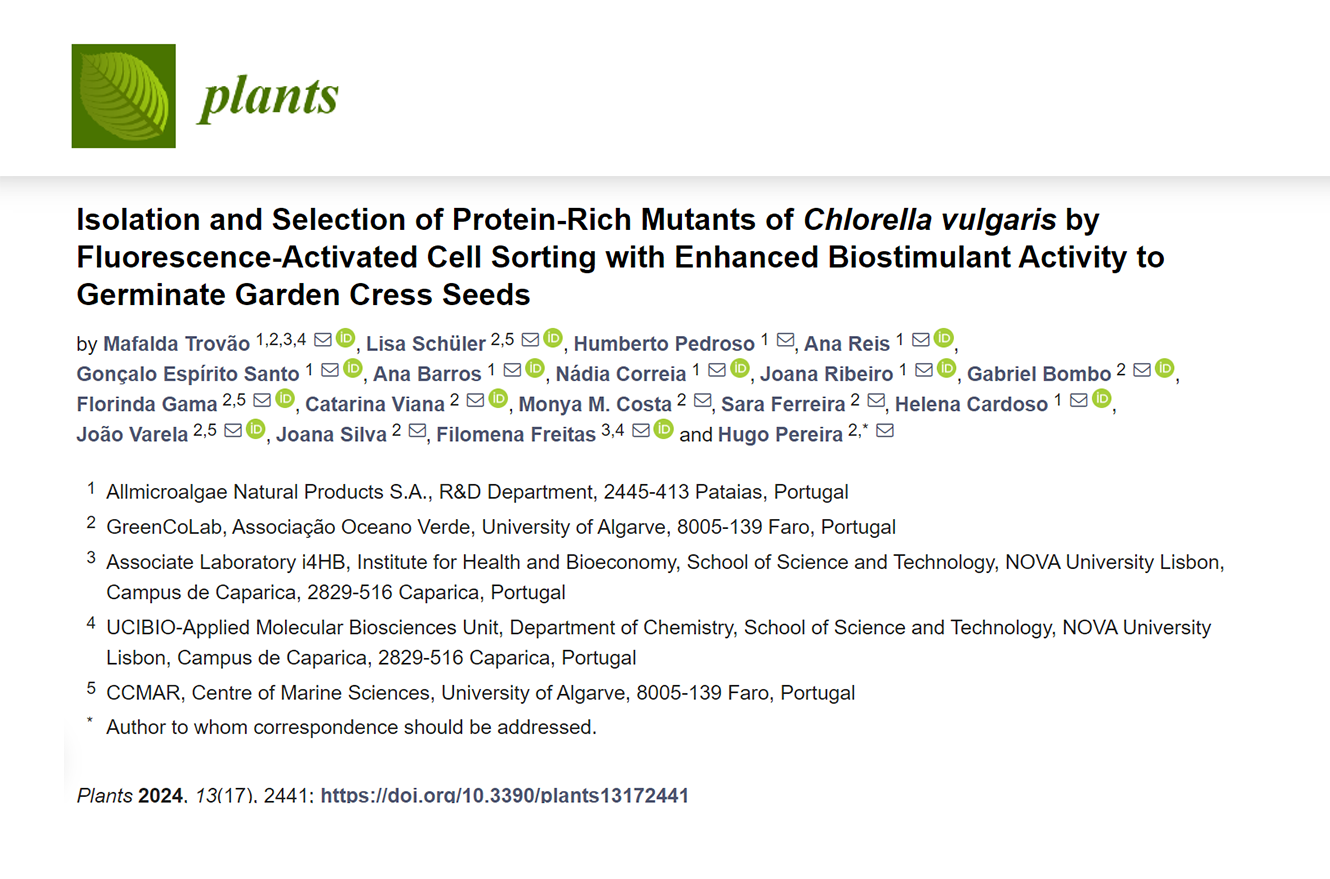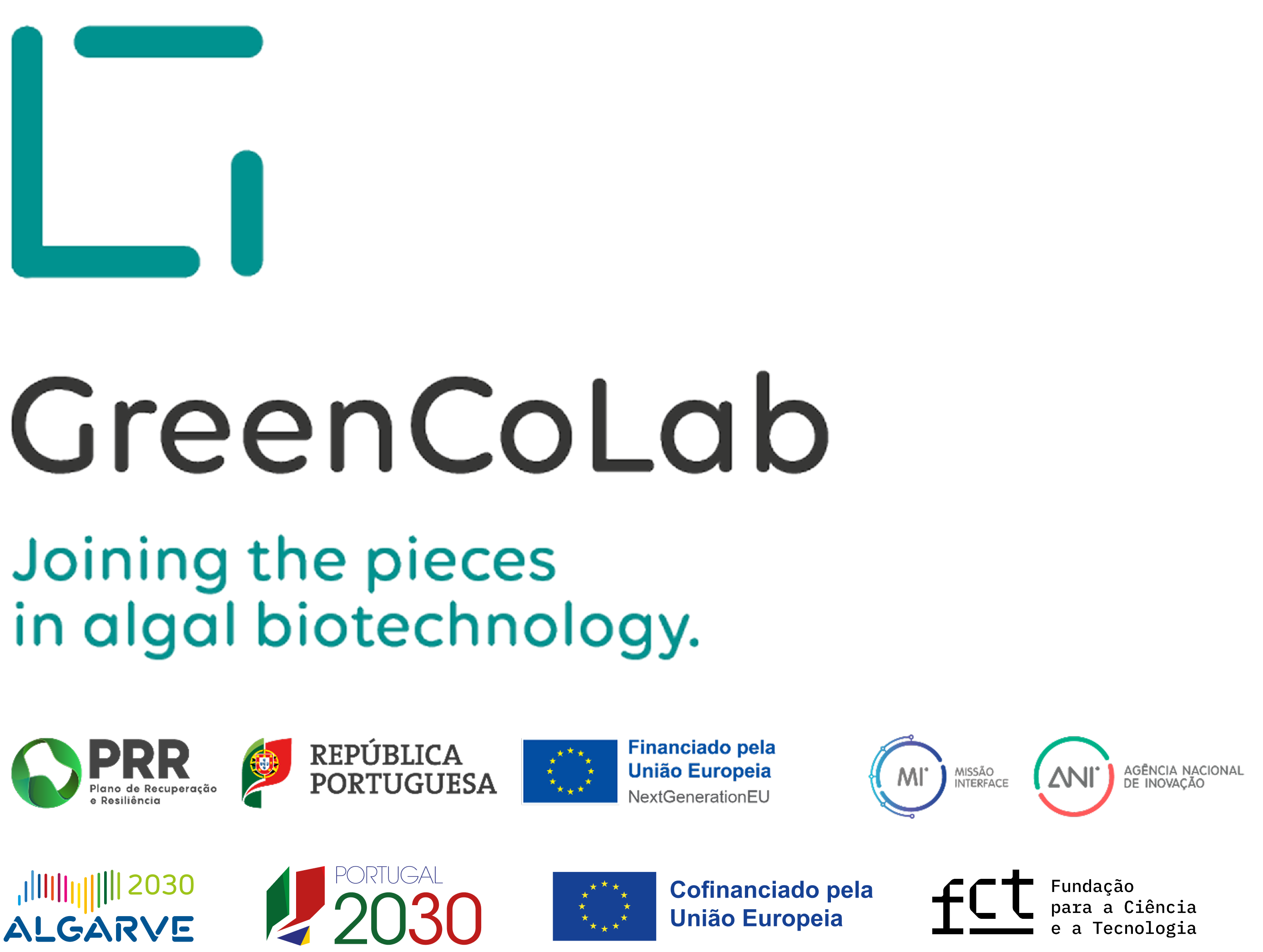

TITLE
Isolation and Selection of Protein-Rich Mutants of Chlorella vulgaris by Fluorescence-Activated Cell Sorting with Enhanced Biostimulant Activity to Germinate Garden Cress Seeds
JOURNAL
Plants
AUTHORS
Mafalda Trovão, Lisa Schüler, Humberto Pedroso, Ana Reis, Gonçalo Espírito Santo, Ana Barros, Nádia Correia, Joana Ribeiro, Gabriel Bombo, Florinda Gama, Catarina Viana, Monya M. Costa, Sara Ferreira, Helena Cardoso, João Varela, Joana Silva, Filomena Freitas and Hugo Pereira
ABSTRACT
Microalgae are a promising feedstock with proven biostimulant activity that is enhanced by their biochemical components (e.g., amino acids and phytohormones), which turns them into an appealing feedstock to reduce the use of fertilisers in agriculture and improve crop productivity and resilience. Thus, this work aimed to isolate protein-rich microalgal mutants with increased biostimulant activity. Random mutagenesis was performed with Chlorella vulgaris, and a selection of protein-rich mutants were sorted through fluorescence-activated cell sorting (FACS), resulting in the isolation of 17 protein-rich mutant strains with protein contents 19–34% higher than that of the wildtype (WT). Furthermore, mutant F4 displayed a 38%, 22% and 62% higher biomass productivity, growth rate and chlorophyll content, respectively. This mutant was then scaled up to a 7 L benchtop reactor to produce biomass and evaluate the biostimulant potential of this novel strain towards garden cress seeds. Compared to water (control), the germination index and the relative total growth increased by 7% and 19%, respectively, after the application of 0.1 g L−1 of this bioproduct, which highlights its biostimulant potential.



